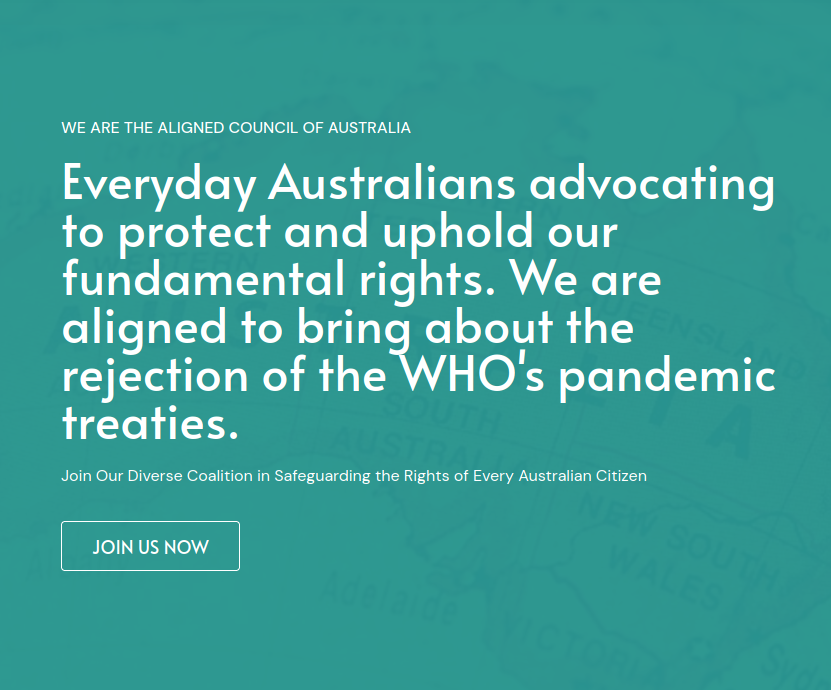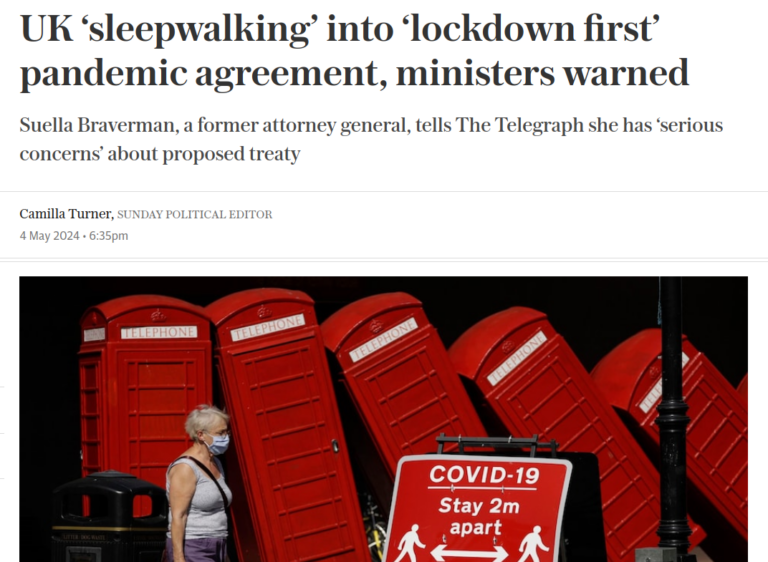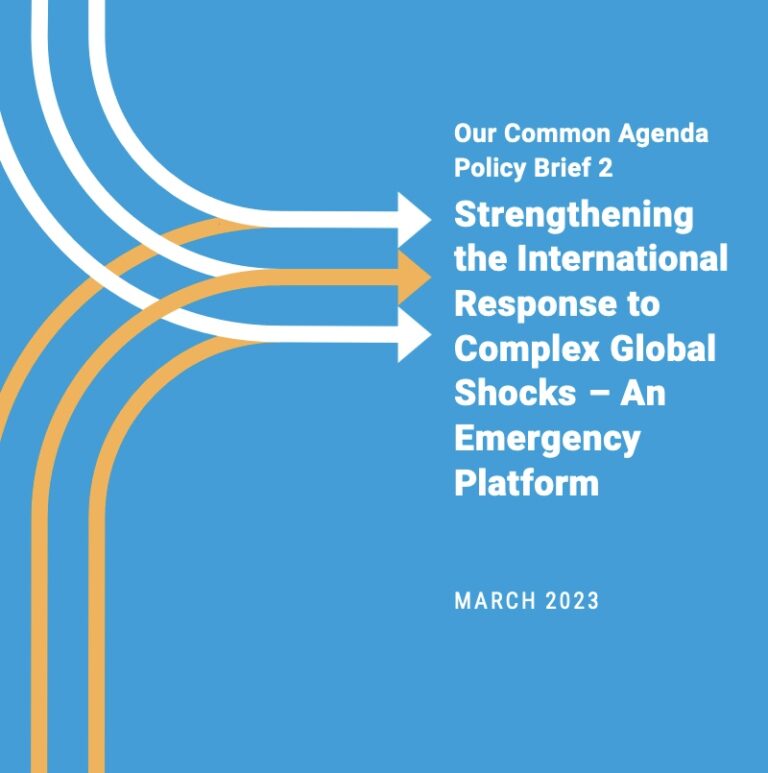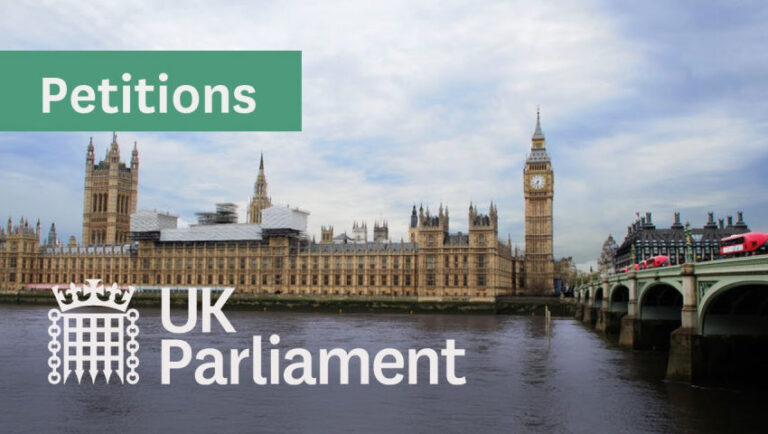The newly formed Aligned Council of Australia (ACA) launches Action Week 6-12 May to inform Australians of the World Health Organization’s (WHO) proposed pandemic treaty reforms and how these can significantly impact their daily lives and health.
Ramesh Thakur, Emeritus Professor in the Crawford School of Public Policy, The Australian National University, and former Assistant Secretary-General of the United Nations, is gravely concerned that if these reforms are not rejected in their current form before May 27 this year:
“The two sets of changes to the architecture of global health governance will effectively change the WHO from a technical advisory organisation offering recommendations, into a supranational public health authority telling governments what to do”.
These pandemic treaty reforms include extensive amendments to the 2005 International Health Regulations (IHR) and a new pandemic treaty.
Article 49.5 of the IHR proposes that the Director General of the WHO, will not only be able to personally select members of the Emergency Committee tasked with making recommendations, but that:
‘The views of the Emergency Committee shall be forwarded to the Director-General for consideration. The Director-General shall make the final determination on these matters.
In Article 42 of the proposed IHR amendments WHO Member States (which includes Australia) are also bound to comply:
‘Health measures taken pursuant to these Regulations shall be initiated and completed without delay and applied in a transparent and non-discriminatory manner. States Parties shall take all practicable measures, in accordance with national laws, to engage with non-State actors operating in their respective jurisdictions with a view to achieving compliance with, and implementation of, health measures taken pursuant to these Regulations.’
This will be ensured by a newly appointed “National IHR Authority” which is an entity designated or established by member countries at the national level to coordinate the implementation of these Regulations within the territory of the member countries’ (Articles 1 and 4 IHR.).
These health measures, (Article 18 IHR) may include:
- proof of medical examination and any laboratory analysis;
- medical examinations;
- proof of vaccination or other prophylaxis;
- vaccination or other prophylaxis;
- place suspect persons under public health observation;
- implement quarantine or other health measures for suspect persons;
- implement isolation and treatment where necessary of affected persons;
- implement tracing of contacts of suspect or affected persons;
- refuse entry of suspect and affected persons;
- refuse entry of unaffected persons to affected areas;
- implement exit screening and/or restrictions on persons from affected areas.
This level of power in the hands of one individual and organisation is unacceptable, and the ACA calls on Australians and their elected officials to reject the amendments and treaty which would allow it.
“This would have disastrous consequences for fundamental human rights… Australia still has the power to reject these amendments that would allow WHO’s Director-General to arbitrarily impose pandemic lockdowns, vaccine mandates, and other highly oppressive measures. Above all, if the use of these policies becomes a reality, the world as we know it will cease to exist. We either stand for our basic rights and freedoms or risk losing everything come May 2024”
Augusto Zimmermann, Professor of Law, Head of Law, Chair of the Research Committee, and co-Chair of the Academic Council at Sheridan Institute of Higher Education, Perth.
The pandemic treaty reforms are due to be voted upon by Australian unidentified delegates, and the other 193 WHO Member States, in the week of 27 May 2024 at the 77th World Health Assembly. However, the reforms are still being negotiated.
Under its own WHO rules, the amendments to the International Health Regulation Amendments (IHR’s) were supposed to be delivered in January 2024, so that the 194 member countries could review them and the new pandemic treaty, with sufficient time, before voting.
They have not provided them yet.
An open letter co-authored by Australian Dr David Bell who is a former medical officer and scientist at the WHO and Programme Head for malaria and febrile diseases at the Foundation for Innovative New Diagnostics (FIND) in Geneva, states:
‘The adoption of any amendments of the IHR at the 77th WHA can no longer be achieved in a lawful manner. Currently, the WGIHR keeps negotiating the draft amendments, with the aim to finalise the package of proposed amendments during its 8th meeting scheduled for the 22nd – 26th April that is then to be presented to the 77th WHA. This modus operandi is unlawful. It violates Article 55(2) IHR which sets out the procedure to be followed for amending the IHR:
‘The text of any proposed amendment shall be communicated to all States Parties by the Director-General at least four months before the Health Assembly at which it is proposed for consideration.’
The Open Letter to the WHO adds:
‘Whilst some have argued that urgency in developing new pandemic management instruments is justified by a rising risk and burden of such infectious disease outbreaks, this has recently been demonstrated to be a markedly exaggerated claim. The evidence bases on which the WHO have relied, and partner agencies including the World Bank and G20, demonstrate that the risk of naturally-derived outbreaks is not currently increasing, and overall burden is probably declining. This suggests that current mechanisms are indeed working relatively effectively, and changes must be viewed carefully, without undue urgency, in the light of the heterogeneity of threat and competing public health priorities across WHO Member States.’
Why should Australians reject the amendments and new pandemic treaty? Isn’t the WHO a trustworthy organisation?
Dr Bell states:
“The WHO once based its priorities on assessment of disease burden and country need. It has now become a public-private partnership with most of its work directly specified by its funders, who include pharmaceutical companies and their private investors. These are the same entities who gained financially from the COVID-19 response and will do so through the proposed Pandemic Agreement and IHR amendments.”
Other countries have chosen to reject some or all, of the proposed amendments at this time.
These include the Dutch House of Representatives in the Netherlands who are calling for a postponement and the new New Zealand Parliament who have already rejected some of the amendments.
The New Zealand Government will also conduct a national interest analysis before agreeing to any pandemic treaty reforms and has sought the views of the New Zealand people via a national survey.
However, most Australians remain unaware of the proposed changes and how they will significantly change their way of life and potentially affect their health.
More worrying is that most Australian politicians appear not to understand them.
Therefore, AUSTRALIA wide, from 6 May 2024, The Aligned Council of Australia, will launch ‘Australia’s Action Week’to inform Australians about the World Health Organization’s (WHO) pandemic treaty reforms.
During action week, The ACA will:
- Continue with Australia’s Greatest Letterbox Drop when thousands of registered volunteers will continue
- Delivery of millions of flyers to Australian households.
- Run billboards across the ACT, as per those already run in WA, VIC, NSW and SA
- Run inclusive community education and activation programs
- Equip Aussies to contact their Federal Members of Parliament and Senators with their concerns via the MySayMatters platform and National Electoral Representative initiative
The Aligned Council of Australia
The Aligned Council of Australia Ltd of Australia is an expert advocacy collective which represents over 37 organisations and 1.32 million Australians.
The ACA is an initiative of aligned every day Australians including lawyers, doctors, accountants, professors, emergency services personnel, community leaders, business owners, and individuals to bring awareness to deeply concerning proposals being put forward by the World Health Organization (WHO) in the name of the next ‘pandemic’.
Experts include Prof Gigi Foster, Professor Ian Brighthope, Professor Paul Frijters, Professor Ramesh Thakur, Prof James Allan, Ms Katie Ashby-Koppens and numerous medical and other professionals.
The Council was formed in February 2024 in response to the World Health Organization’s (WHO) two pandemic reforms.
ACA aims to bring awareness of the deeply concerning proposals being put forward by the World Health Organization. The proposals contradict fundamental democratic rights and basic human freedoms and call into question Australia’s ability to function as an independent sovereign nation.
“Tens of thousands of protestors are gathering around the world to oppose the two pandemic treaty reforms. We urge Australians to inform themselves immediately via the ACA website at www.alignedcouncilofaustralia.com.au, to take action as they see fit and to communicate their opposition to our federal politicians before May 27”.
Professor Ian Brighthope for the ACA.
Media representatives are invited to join our media list for updates at:
www.alignedcouncilofaustralia.com.au
Quotes attributable to – Professor Ian Brighthope ACA:
Interviews available:
Emeritus Professor Ramesh Thakur
Professor Augusto Zimmerman
Dr David Bell
Professor Ian Brighthope
Images availble on request
-END-
Media Contact– media@alignedcouncilofaustralia.com.au








